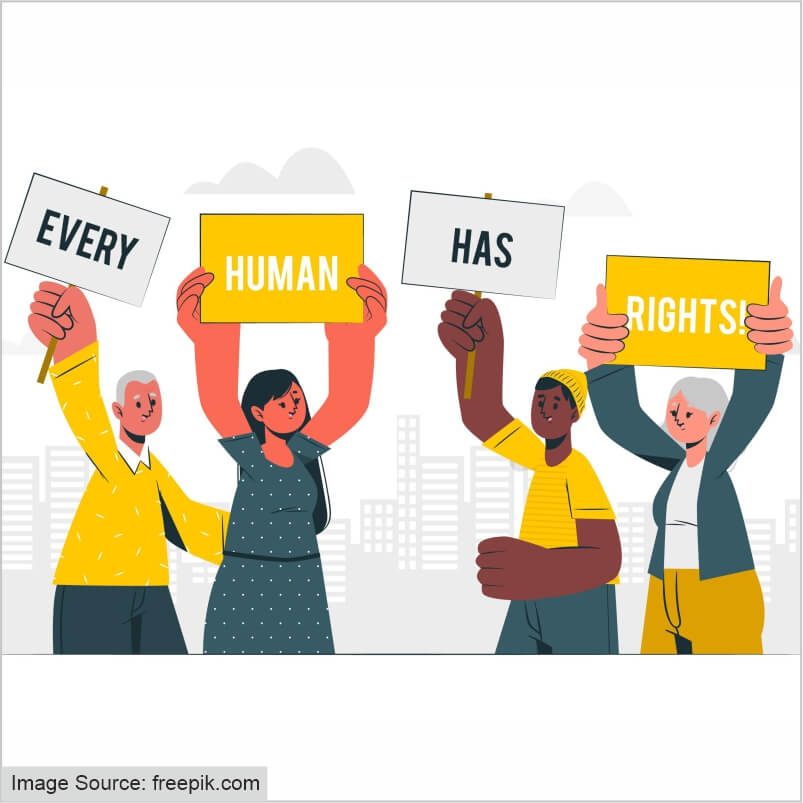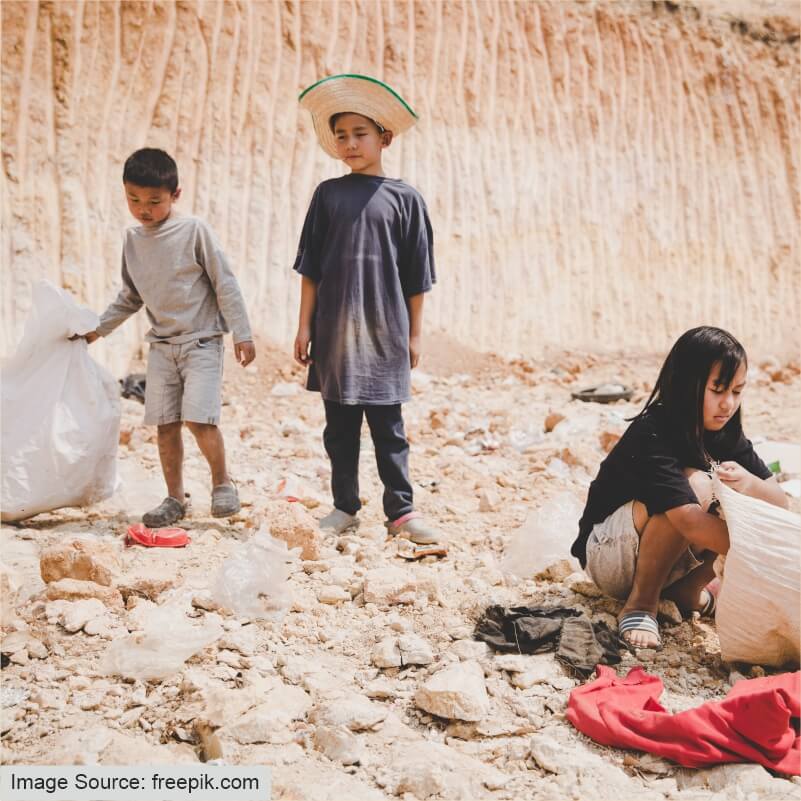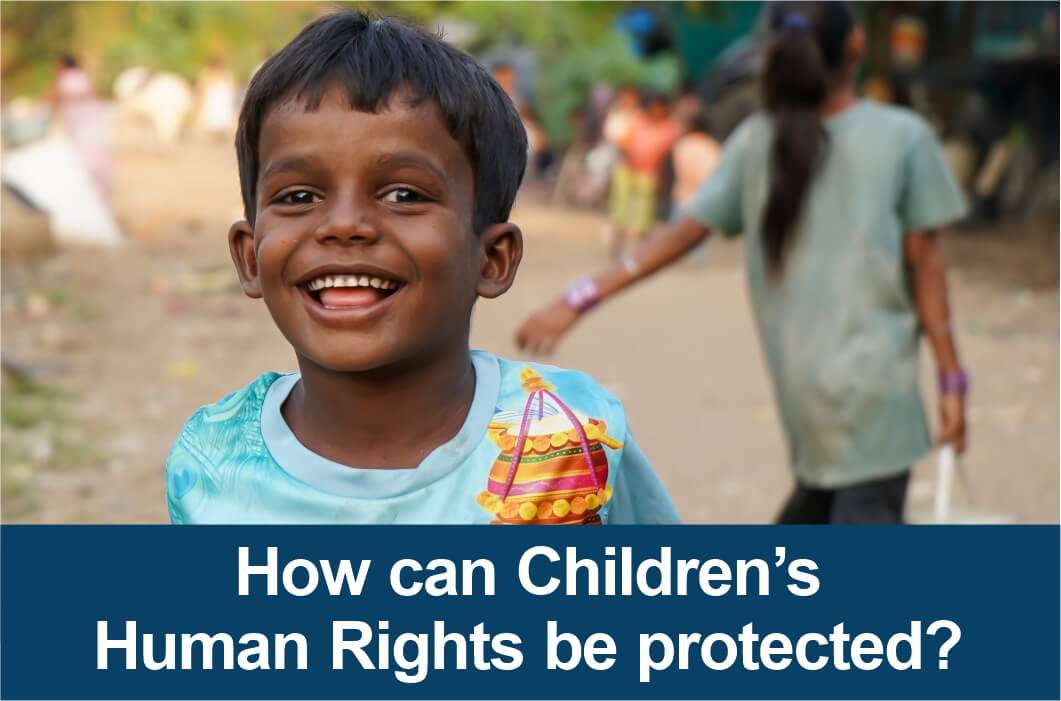Every year, 10th December is celebrated as Human Rights Day. The United Nations General Assembly chose this day in 1948 to commemorate the adoption and declaration of Human Rights. On 4th December, 1950 at the General Assembly's 317th Plenary Meeting, resolution 432(V); was adopted, officially establishing Human Rights Day and urging all state members and other interested groups to observe the day as they saw fit. A "common standard of success for all people and nations" was announced to be the Declaration of Human Rights. The call was made for people and communities to "strive through progressive measures, national and international, to guarantee their universal and effective acknowledgment and practice". Even though the declaration of civil, political, social, economic, and cultural rights was undocumented, it served as a role model for more than 60 other human rights documents, which collectively formed a global standard of human rights. Today the basic human rights laid down in the declaration makes it even firmer and emphasizes its relevance in our daily lives. Human Rights Day is marked by political meetings, conferences, as well as by human rights-related cultural events and exhibitions.
The term ‘Human Rights’ refers to a broad variety of rights, including freedom from slavery and torture, the right to life and liberty, the right to free expression, the right to education and work, among many others. There are around 1 billion people on earth, and the numbers have been rising due to overpopulation. The effect of which shows up in the form of inequalities and poverty especially among the marginalized groups. They face unfair trials, tortured or abused and restricted in their freedom of expression. Children continue to face the harshest condition anywhere in the world with malnutrition, child abuse, forced beggary, childhood sickness and so on.
Violation of rights happens everywhere around the world. The reasons being lack of awareness and means to enforce rights. Children are the most vulnerable group to become victims of such violation while they should be the primary beneficiary of all human rights. They represent the nation's future and are entitled to the basic fundamental rights such as the right to freedom, expression, health care, education opportunities and so on. There are millions of children who are targeted because of their young age, physical weakness, and inability to care for themselves.
Violence can be physical, sexual or emotional. It can also be interpersonal or in the form of structures that allow or promote violent behavior. Children of poor socio-economic background are more often prone to abuse and exploitation. These exploited children are rendered helpless and are simple targets for abuse. Research and evidence states the knowns of an abused child, such as parents, other family members, caregivers, teachers, employers, law enforcement officials, and other children, frequently themselves engage in violence, exploitation, and abuse.

The major challenges that needs to be dealt with to prevent violation of children's rights are;
- Child Labor- Work that robs children of their childhood, potential, and dignity and is detrimental to their physical and mental development is known as "child labour." The different types of child labour are forced child labour, child trafficking, drug trafficking, slavery, debt bondage and so on. Many children are pressured to work as people hire these children or force them to work at low wages to benefit themselves. Child Labour is mentally, physically, morally and socially dangerous to a child’s development.
- Child Abuse- Any action or inaction on the part of a parent or other caregiver that results in actual or potential injury to a child is considered child abuse. Every year there are number of children dying due to child abuse. Child abuse may include injuries or severe disability caused by any environmental stressor which leads to mental or emotional trauma, suffering or death.
- Child Marriage - A legal or informal connection between a child under the age of 18 and an adult or another child is known as a "child marriage." Child marriage is a major problem in India. It mainly occurs in rural areas where all religious faiths and racial group norms are driven by ancient social norms, insecurity, gender inequality.
- Child Sexual Exploitation- When a child is offered rewards such as drugs, presents, money, status, and affection, in return for engaging in sexual activity of any kind, is known as child sexual exploitation. Young individuals, especially children, are frequently targeted because they are innocent and have a loving and caring attitude. They may fail to recognise that they are being abused. A child or young person may be forced or made to feel as though they have no option by an abuser using violence and intimidation. They also manipulate them financially or lend them a lot of money they know they won't be able to repay.

Even though children are the greatest hope and assets of our nation, they are also the victims of various human rights violations. In recent years, unfortunately the crimes against children are increasing. Government and child-focused organizations have taken the responsibility to protect children and provide them with a safe environment. Communities, local groups and several other organizations have been taking part in promoting childcare facilities. To stop child abuse, it is crucial that parents are made more aware of the issue and that schools adopt child protection measures. Particular initiatives aimed at improving the protective role of families should also be set in place for the younger children. The UNICEF programme also involves working with communities and families to recognise violence and to support alternative behaviors, such as good discipline. Communities that encourage a culture of reporting and resisting violence helps deal with violation in the first place.
Every human being is born free. Children have the same freedom to express their thoughts and to demonstrate peacefully as adults do and so the government and society must uphold those rights fully. According to the Universal Declaration of Human Rights, "Everyone is entitled to all the rights and freedoms set forth in the Universal Declaration of Human Rights, without distinction of any kind, such as race, colour, sex, language, religion, political or other opinion, national or social origin, property, birth, or other status."
“To deny people their human rights is to challenge their very humanity.” - Nelson Mandela
